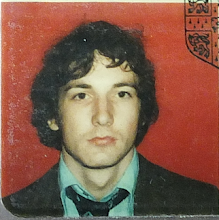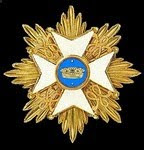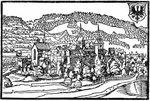First raised June 1740 specifically as a regiment for Frederick's brother Heinrich (Henry) who was its chef until his death in 1802, apparently.
In 1756 IR 35 was part of the Prussian force surrounding and containing the Saxon army at Pirna. The 1st Battalion was attacked at Hirschfeld on February 20th 1757 and two captains received awards of the Pour-le-Merite as a consequence of their bravery. In January 1757 the 2nd Battalion was mauled in an attack on its quarters in Ostritz. Early in April the regiment joined Bevern's corps at Reichenberg; for its distinguished conduct at the battle on the 21st the regiment was honoured with the Grenadiers' March. The restored 2nd Battalion led the left attack under Bevern at Prague in May and was involved in the bloody battle by the Rokenitz Brook. Casualties for the whole regiment were around 20% (Duffy, Army of Frederick the Great, 1st Edition henceforth AFG1). At Kolin on the 18th June, in the second line of the left wing, it was part of the attack under Tresckow on the Kamajka Heights where the attack was led by the king himself with drawn sword. Some time later its attack with the bayonet broke through the Austrian and Saxon line south-west of Krzeczhorz but the Saxon cavalry then scattered the 1st battalion. The regiment lost fully 50% in casualties (AFG1). According to Dorn and Engelmann at the Prussian defeat at Breslau on the 22nd November the 2nd Battalion, on the left wing under Zieten, twice recaptured the village of Kleinburg but this conflicts with the account in Kronoskaf; Duffy's detailed relation of the battle in his book on Rossbach and Leuthen is disappointingly vague on the actions of individual Prussian regiments so does not resolve the problem. At Leuthen on December 5th the 1st Battalion was on the left wing and in the second line and is reported to have performed well.
At the siege of Domstadtl in May to July 1758 First Lieutenant von Lattorff serving with the regiment won the Pour-le-Merite. On June 30th, when Domstadtl was attacked, the grenadiers succeeded in escorting one hundred pay and ammunition wagons to safety. By now, having had further losses, the regiment was too weak for further employment until recruits could be had but it had no recruiting area of its own and Saxony was not providing enough.
By the summer of 1759 both battalions had been made up to strength and the regiment was with the King's army at Schmottseiffen. On 12th August both grenadiers and the whole regiment were at Kunersdorf; after repeated attacks on the batteries on the Grosse Spitzberg failed, the regiment was suffering from exhaustion, the heat and lack of ammunition. The King himself, having had two horses shot from under him and with bullet holes in his coat, tried to prevent the regiment falling back. He grabbed a flag and declared: "I must do my duty here like any other!" but an attack by Austrian cavalry decided the battle. The grenadiers lost 50%, the two battalions of the regiment itself at least 35% casualties (AFG1). The regiment is supposed to have been the last to leave the battlefield.
In 1760 the regiment was with Prince Heinrich's corps and helped take the heights of Hoch-Giersdorf and 17 cannon on September 17th. At Torgau on November 3rd it was on the left flank with the Queiss brigade; the second attack on the Süptitz Heights ground to a halt. Cavalry attack from both flanks caused heavy losses.
In 1761 the regiment was in the camp of Bunzelwitz with the King and finally in 1762 took part in the capture of Schweidnitz from August to October.
At the May review of 1764 the King praised his brother Heinrich as "the only general who made no mistakes".
And here is the uniform in 1756:
Coming next; the flags of Prussian Fusilier Regiment 46 and possibly the standards of Dragoon Regiment 1.




















